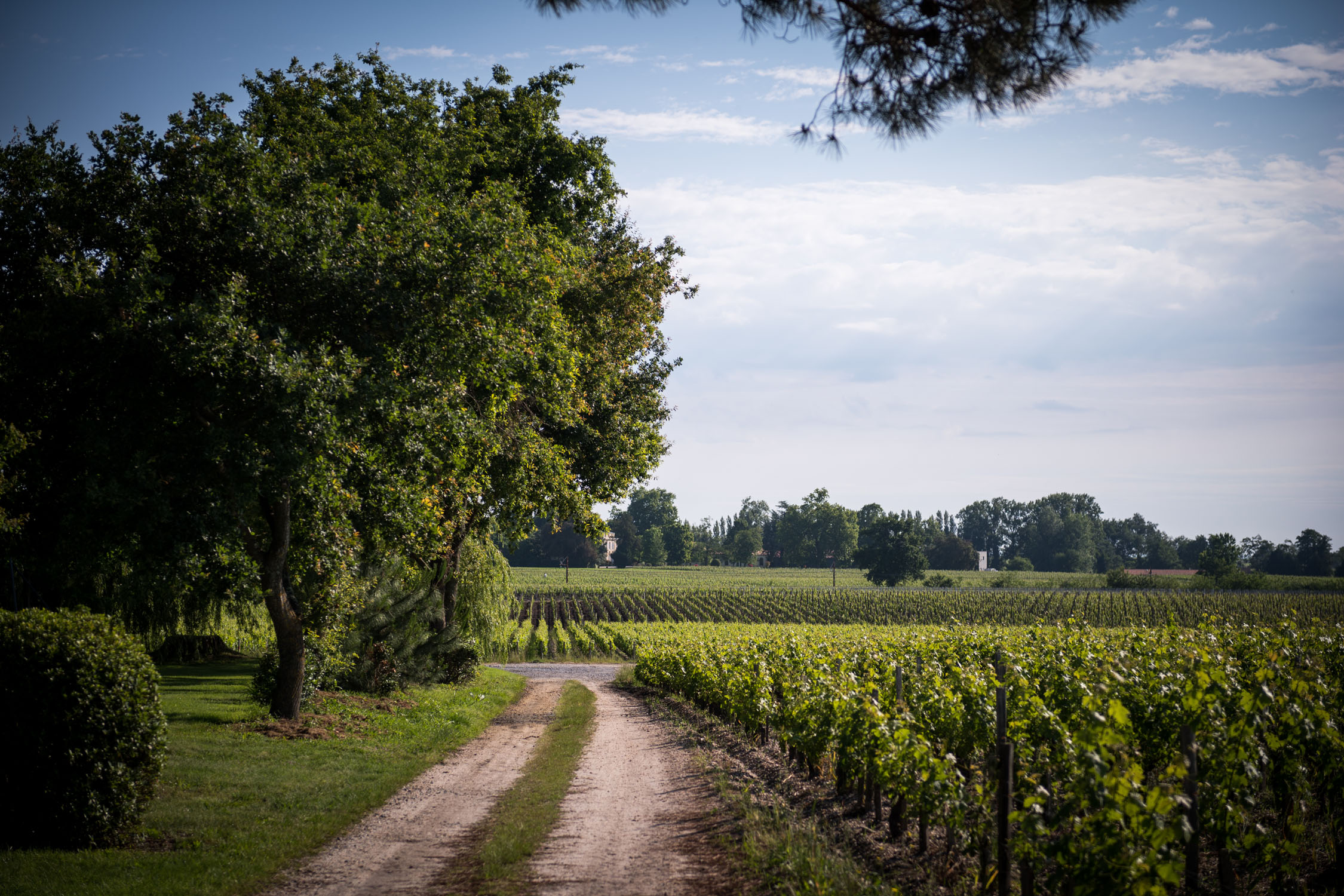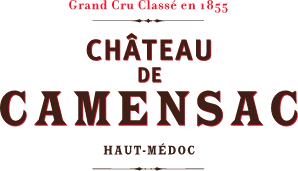OUR VINEYARD
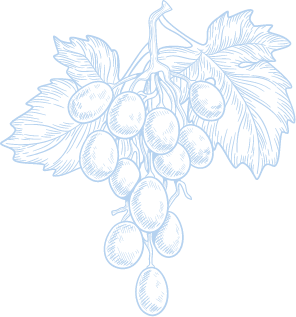
The World of Camensac
A rigorous approach
Each plot benefits from meticulous care adapted to its profile. Each vine is an individual on which more than fifteen manual and mechanical operations are carried out over the course of the year: it could be called a “luxury vineyard”!
Château de Camensac covers 150 hectares, 86 of which are in production.
The rest is woodland and meadows where lambs, ewes and sheep graze.
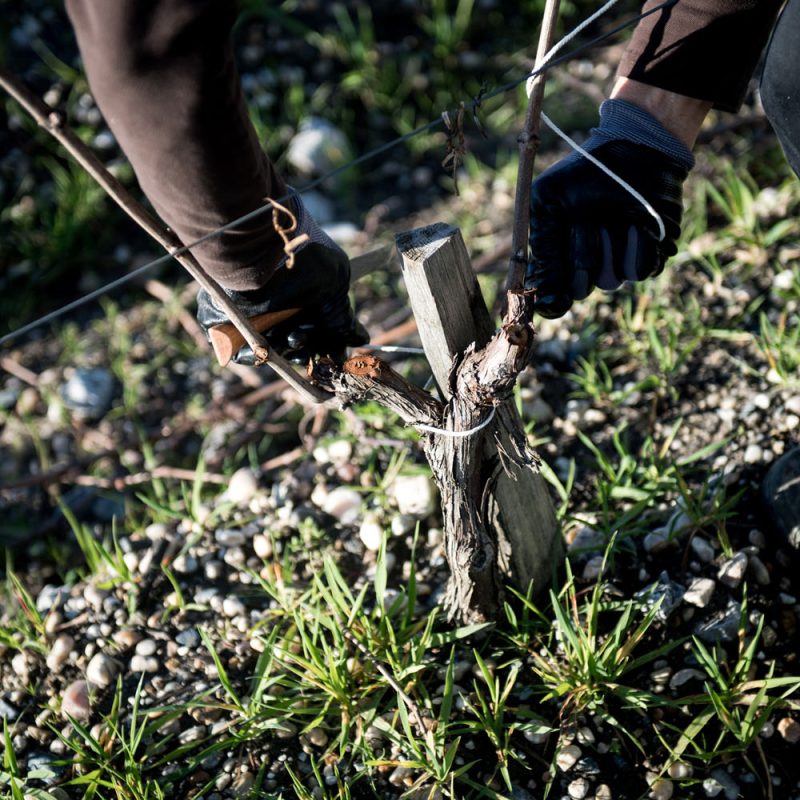
A geological palette of different soil types that determine the grape varieties:
- Gunzian gravel from the Quaternary period
- Villafranchian gravel from the Tertiary period
- Clay on shallow limestone
50% Cabernet Sauvignon / 50% Merlot
123 plots in the Haut-Médoc appellation
The style of our wines is explained by the vine’s location and the micro-climate, with mild winters and hot summers but which is oceanic, favouring healthy growth and well-ripened grapes, combined with a deep gravel terroir, brought by the river (Villafranchian and Gunzian gravel).

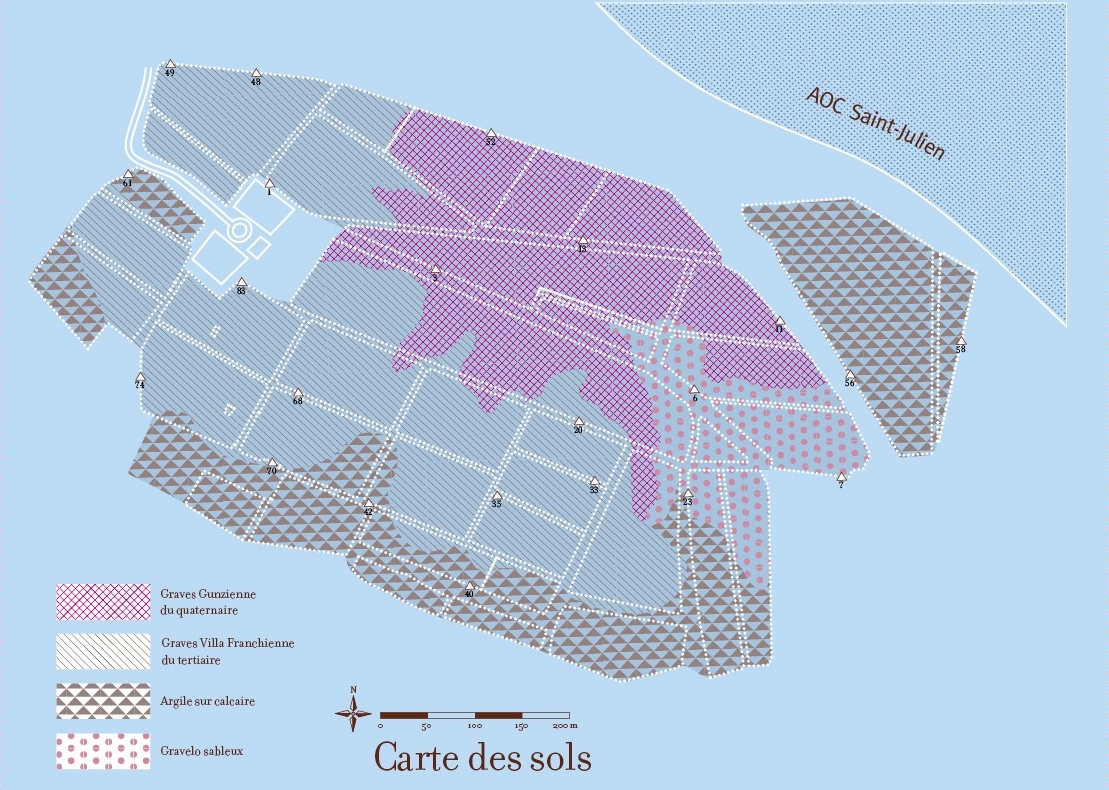
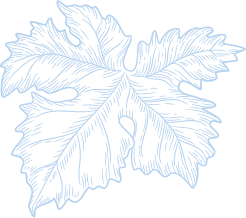
Winery facilities in line with the vineyard
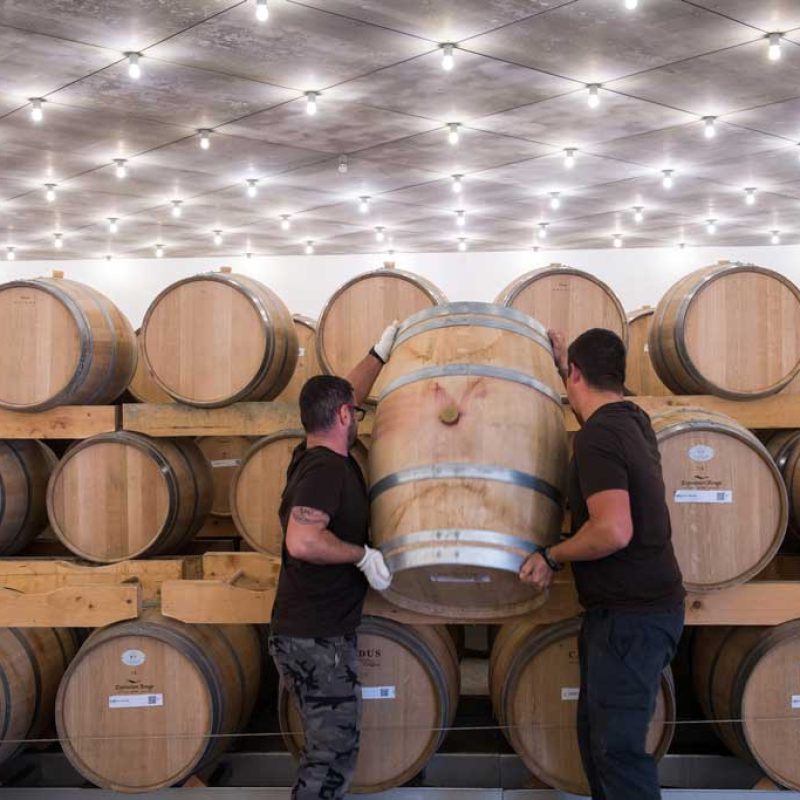
The greatest care is taken in a constant search for excellence and the best expression of the Terroir. Bringing out the best in a great terroir depends on the winegrower’s skill in cultivating and caring for each plot of vines. Ever more rigorous plot selection and vinification adapted to the grapes allow us to produce great wines.
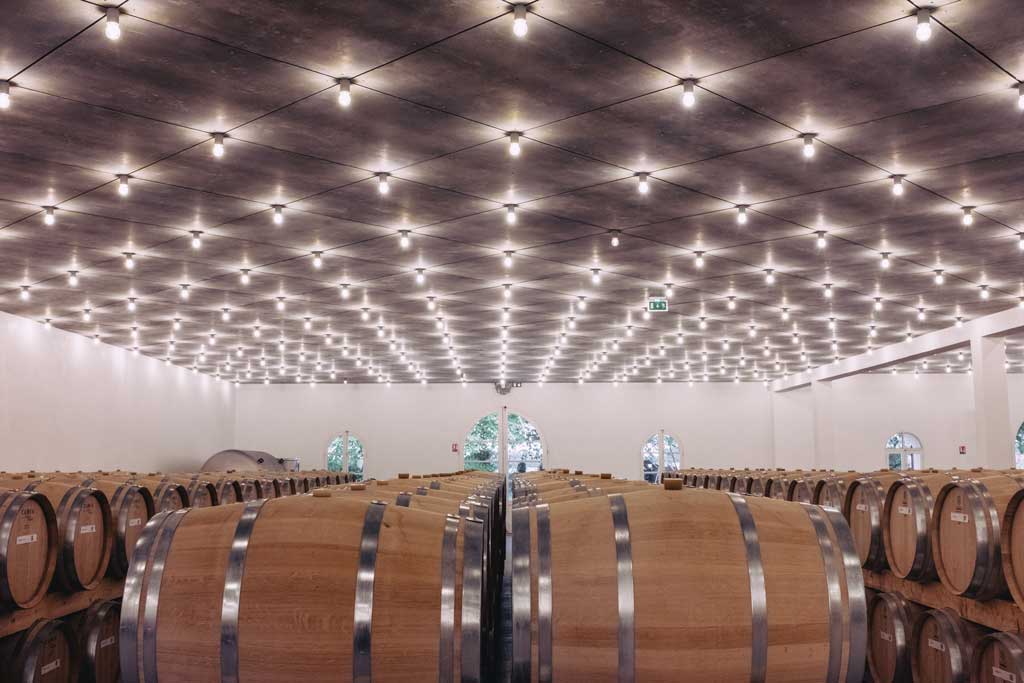

The greatest care is taken in a constant search for excellence and the best expression of the Terroir. Bringing out the best in a great terroir depends on the winegrower’s skill in cultivating and caring for each plot of vines. Ever more rigorous plot selection and vinification adapted to the grapes allow us to produce great wines.
A wine with a rich past and a promising future.
Traditions are the legacy of honed expertise, and of the skills and creativity of past generations.
Innovation is the expression of the creativity and skills of the current generation and its contribution to future generations.
By opting for mechanical weed control, sustainable agriculture and agro-ecological techniques, tradition and innovation complement rather than oppose each other.
